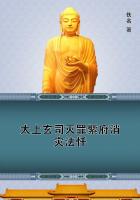In the contract of commodate-loan (commodatum) I give some one the gratuitous use of something that is mine.If it is a thing that is given on loan, the contracting parties agree that the borrower will restore the very same thing to the power of the lender, But the receiver of the loan (commodatarius) cannot, at the same time, assume that the owner of the thing lent (commodans) will take upon himself all risk (casus) of any possible loss of it, or of its useful quality, that may arise from having given it into the possession of the receiver.For it is not to be understood of itself that the owner, besides the use of the thing, which he has granted to the receiver, and the detriment that is inseparable from such use, also gives a guarantee or warrandice against all damage that may arise from such use.On the contrary, a special accessory contract would have to be entered into for this purpose.The only question, then, that can be raised is this: "Is it incumbent on the lender or the borrower to add expressly the condition of undertaking the risk that may accrue to the thing lent; or, if this is not done, which of the parties is to be presumed to have consented and agreed to guarantee the property of the lender, up to restoration of the very same thing or its equivalent?" Certainly not the lender; because it cannot be presumed that he has gratuitously agreed to give more than the mere use of the thing, so that he cannot be supposed to have also undertaken the risk of loss of his property.But this may be assumed on the side of the borrower; because he thereby undertakes and performs nothing more than what is implied in the contract.
For example, I enter a house, when overtaken by a shower of rain, and ask the loan of a cloak.But through accidental contact with colouring matter, it becomes entirely spoiled while in my possession; or on entering another house, I lay it aside and it is stolen.Under such circumstances, everybody would think it absurd for me to assert that I had no further concern with the cloak but to return it as it was, or, in the latter case, only to mention the fact of the theft; and that, in any case, anything more required would be but an act of courtesy in expressing sympathy with the owner on account of his loss, seeing he can claim nothing on the ground of right.It would be otherwise, however, if, on asking the use of an article, I discharged myself beforehand from all responsibility, in case of its coming to grief while in my hands, on the ground of my being poor and unable to compensate any incidental loss.No one could find such a condition superfluous or ludicrous, unless the borrower were, in fact, known to be a well-to-do and well-disposed man; because in such a case it would almost be an insult not to act on the presumption of generous compensation for any loss sustained.
Now by the very nature of this contract, the possible damage (casus)which the thing lent may undergo cannot be exactly determined in any agreement.Commodate is therefore an uncertain contract (pactum incertum), because the consent can only be so far presumed.The judgement, in any case, deciding upon whom the incidence of any loss must fall, cannot therefore be determined from the conditions of the contract in itself, but only by the principle of the court before which it comes, and which can only consider what is certain in the contract; and the only thing certain is always the fact as to the possession of the thing as property.Hence the judgement passed in the state of nature will be different from that given by a court of justice in the civil state.The judgement from the standpoint of natural right will be determined by regard to the inner rational quality of the thing, and will run thus: "Loss arising from damage accruing to a thing lent falls upon the borrower" (casum sentit commodatarius); whereas the sentence of a court of justice in the civil state will run thus: "The loss falls upon the lender" (casum sentit dominus).The latter judgement turns out differently from the former as the sentence of the mere sound reason, because a public judge cannot found upon presumptions as to what either party may have thought; and thus the one who has not obtained release from all loss in the thing, by a special accessory contract, must bear the loss.Hence the difference between the judgement as the court must deliver it and the form in which each individual is entitled to hold it for himself, by his private reason, is a matter of importance, and is not to be overlooked in the consideration of juridical judgements.
39.III.The Revindication of what has been Lost.
(Vindicatio).
It is clear from what has been already said that a thing of mine which continues to exist remains mine, although I may not be in continuous occupation of it; and that it does not cease to be mine without a juridical act of dereliction or alienation.Further, it is evident that a right in this thing (jus reale) belongs in consequence to me (jus personale), against every holder of it, and not merely against some particular person.But the question now arises as to whether this right must be regarded by every other person as a continuous right of property per se, if I have not in any way renounced it, although the thing is in the possession of another.
A thing may be lost (res amissa) and thus come into other hands in an honourable bona fide way as a supposed "find"; or it may come to me by formal transfer on the part of one who is in possession of it, and who professes to be its owner, although he is not so.Taking the latter case, the question arises whether, since I cannot acquire a thing from one who is not its owner (a non domino), I am excluded by the fact from all right in the thing itself, and have merely a personal right against a wrongful possessor? This is manifestly so, if the acquisition is judged purely according to its inner justifying grounds and viewed according to the state of nature, and not according to the convenience of a court of justice.















